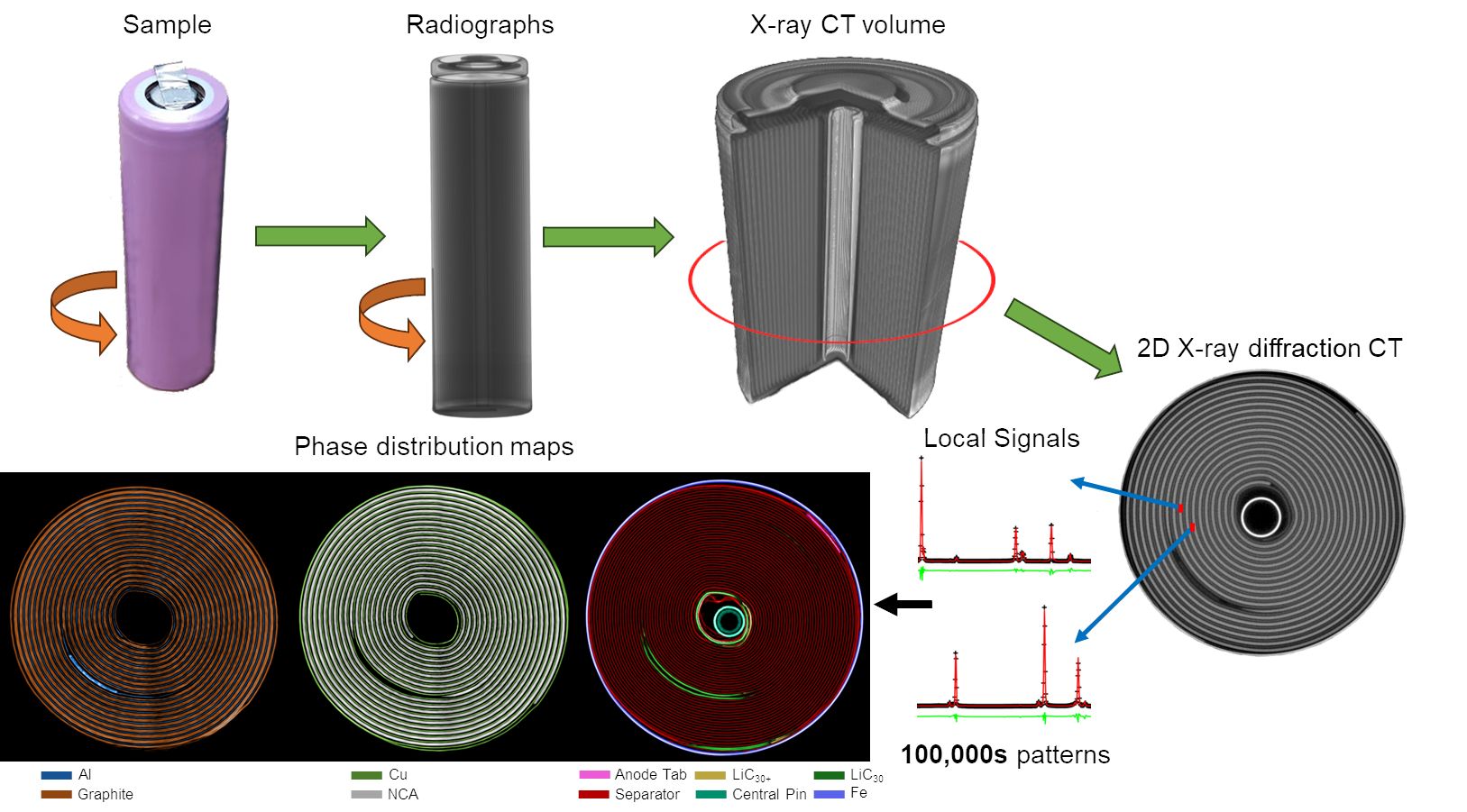New paper on nDTomo software in Digital Discovery

We are pleased to have our new paper on nDTomo software from Research & Development Lead Scientist, Dr Antony Vamvakeros accepted in RSC Digital Discovery. The work was done in collaboration with Dyson School of Design Engineering Imperial College London and UCL Chemistry.
nDTomo is a Python-based software suite for the simulation, reconstruction and analysis of X-ray chemical imaging and computed tomography data. It provides a collection of Python function-based tools designed for accessibility and education as well as a graphical user interface (GUI). Prioritising transparency and ease of learning, nDTomo adopts a function-centric design that facilitates straightforward understanding and extension of core workflows, from phantom generation and pencil-beam tomography simulation to sinogram correction, tomographic reconstruction and peak fitting. While many scientific toolkits embrace object-oriented design for modularity and scalability, nDTomo instead emphasises pedagogical clarity, making it especially suitable for students and researchers entering the chemical imaging and tomography field. The suite also includes modern deep learning tools, such as a self-supervised neural network for peak analysis (PeakFitCNN) and a GPU-based direct least squares reconstruction (DLSR) approach for simultaneous tomographic reconstruction and parameter estimation. Rather than aiming to replace established tomography frameworks, nDTomo serves as an open, function-oriented environment for training, prototyping, and research in chemical imaging and tomography.
Read the paper at https://pubs.rsc.org/en/Content/ArticleLanding/2025/DD/D5DD00252D
You can find nDTomo available on PyPI.
More information at:
📚 Docs: https://ndtomo.readthedocs.io/en/master/
⭐ GitHub: https://github.com/antonyvam/nDTomo
Dr Antony Vamvakeros’s work was supported by The Royal Society through the Industry Fellowship.
